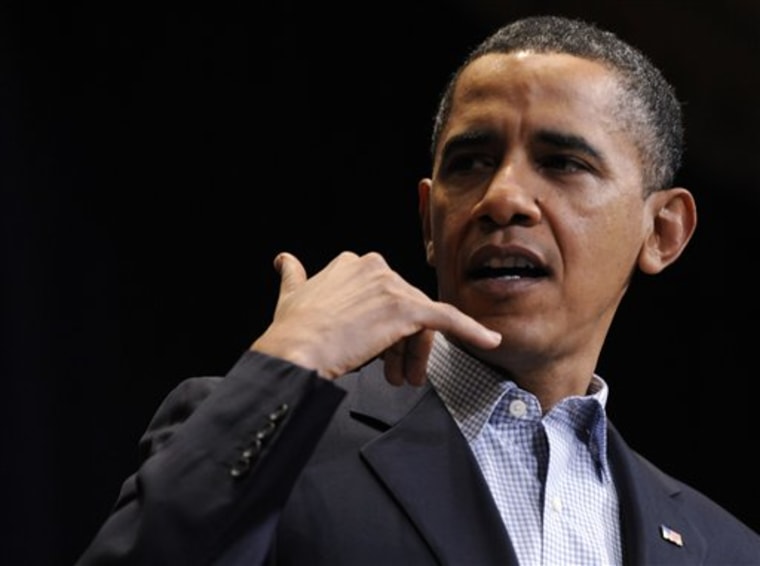Republicans gave a chilly reception Monday to President Barack Obama's invitation to discuss health care in a bipartisan, televised setting later this month, part of the White House effort to revive the stalled legislation.
The House and Senate GOP leaders said Obama and his fellow Democrats must shelve their long-debated health care bill, which was on the verge of becoming law until Republican Scott Brown won a special Senate election in Massachusetts last month. The White House says Obama has no plans to do so but is willing to hear Republicans' ideas.
Rep. Darrell Issa of California, the top Republican on the House Committee on Oversight and Government Reform, said Monday that the first question for Obama should be: "Did you lie about moving forward on malpractice reform?" He was alluding to the president's earlier remarks about possibly curbing malpractice lawsuits, which is not included in the health bills passed separately by House and Senate Democrats in December.
In the first major move to jump-start his health care agenda after his party's loss of a filibuster-proof Senate majority, Obama on Sunday invited GOP and Democratic leaders to discuss possible compromises in a half-day, televised gathering on Feb. 25.
It comes amid widespread complaints that Democrats' efforts so far have been too partisan and secretive.
The meeting's prospects for success are far from clear. GOP leaders insisted on starting from scratch. But many Democrats want to use their party's remaining parliamentary muscle to enact their plans with as few changes as possible.
"If we are to reach a bipartisan consensus, the White House can start by shelving the current health spending bill," said Senate Minority Leader Mitch McConnell, R-Ky.
But House Majority Leader Steny Hoyer, D-Md., said his earlier efforts to reach out to Republicans "did not result in any serious follow through to work together in a bipartisan fashion."
Obama told CBS's Katie Couric that he and the leaders of both parties will "go through systematically all the best ideas that are out there and move it forward."
Asked if he was willing to start from square one, the president said he wants "to look at the Republican ideas that are out there."
"If we can go step by step through a series of these issues and arrive at some agreements," Obama said, "then procedurally, there's no reason why we can't do it a lot faster than the process took last year."
Democratic and Republican leaders in Congress have differed sharply on most major questions in the long-running health care debate. Only one Republican voted for the health care bill that the House approved in November, and no Republicans voted for a similar Senate version.
Many liberal groups want congressional Democrats to enact the health care bill that the Senate passed on Christmas Eve, employing rules that could bypass GOP filibusters to make changes demanded by House Democrats.
The White House has not ruled out such a strategy. But Obama's recent talk of inviting Republican input and extending the debate for several weeks has caused uncertainty about his plans.
A White House statement Sunday said Obama repeatedly has made it clear "that he's adamant about passing comprehensive reform similar to the bills passed by the House and the Senate."
Polls show that many Americans feel Obama and his congressional allies have not sought enough GOP input, although Democrats say Republicans have shown virtually no interest in seeking a realistic agreement.
Obama also is trying to address criticism of Democrats' closed-door negotiations that led to special accommodations for Nebraska and Louisiana senators when their votes on health care were in question. Some Republicans taunted Obama for suggesting earlier that health care negotiations should be aired on C-SPAN, and one GOP senator said health care would be the president's Waterloo.
Obama said the closed-door deal-cutting was not helpful to the process.
"They did not help. They frustrate me. But, you know, this is a democracy," Obama said.
Senate Majority Leader Harry Reid, D-Nev., said, "we have promoted the pursuit of a bipartisan approach to health reform from day one."
